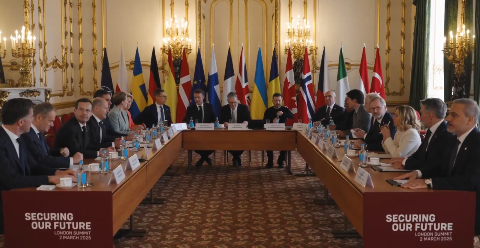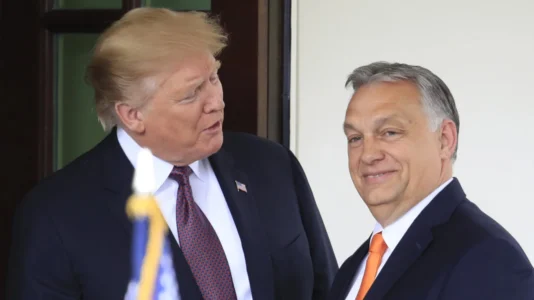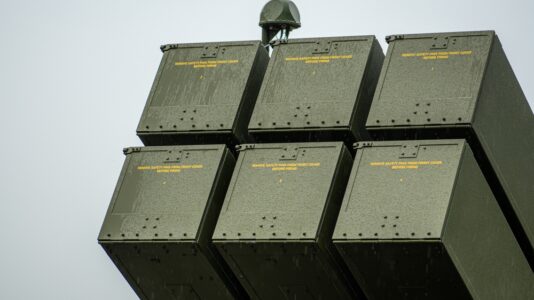Hungarian Prime Minister Viktor Orbán slammed European leaders on Sunday for what he called their continuation of the war effort in Ukraine after a summit in London led to further financing afforded to Kyiv for the purchase of arms.
“European leaders decided in London today that they want to go on with the war instead of opting for peace. They decided that Ukraine must continue the war. This is bad, dangerous, and mistaken. Hungary remains on the side of peace. Ceterum censeo,” Orbán wrote on X.
European leaders decided in London today that they want to go on with the war instead of opting for peace. They decided that Ukraine must continue the war.
This is bad, dangerous and mistaken. Hungary remains on the side of peace. Ceterum censeo.
— Orbán Viktor (@PM_ViktorOrban) March 2, 2025The summit, attended by 17 European leaders and Canadian Prime Minister Justin Trudeau, focused on strategies for securing a lasting peace in Ukraine by continuing to back Kyiv to the hilt. Ukrainian President Volodymyr Zelensky was also present as discussions took place.
One of the key outcomes of the meeting was the formation of a “coalition of the willing,” an alliance of nations that have pledged to send peacekeeping troops to Ukraine should a ceasefire agreement be reached between Moscow and Kyiv — an agreement currently being worked on by U.S. President Donald Trump’s administration.
Additionally, the U.K. reaffirmed its military support for Ukraine, with Prime Minister Keir Starmer announcing a financing agreement allowing Kyiv to purchase £1.6 billion worth of air defense missiles manufactured in Belfast, Northern Ireland. The purchase will be funded by a loan from the British government to be repaid using frozen Russian assets.
“By doubling down on our support, working closely with key partners, and ensuring Ukraine has a strong voice at the table, I believe we can achieve a strong, lasting deal that delivers a permanent peace in Ukraine,” Starmer stated.
My support for Ukraine is unwavering.
The UK stands with you, @ZelenskyyUa. pic.twitter.com/PsVKyRHKvx
— Keir Starmer (@Keir_Starmer) March 1, 2025The summit went better for Ukrainian President Volodymyr Zelensky than his recent trip to the White House after a highly-publicized spat with President Trump and Vice President JD Vance saw the Ukrainian premier told in no uncertain terms that Ukraine “does not hold any cards” without the support of the United States and should seek peace immediately to end the bloodshed.
In Europe, however, the sentiment was notably different. Polish Prime Minister Donald Tusk remarked that Europe has “woken up,” while Italian Prime Minister Giorgia Meloni, a close ally of the Trump administration, cautioned against a rushed peace agreement that might not hold in the long term.
“We must be very careful when assessing what is being proposed, particularly in response to this key question: could this peace be violated? Because, unfortunately, we have seen this happen in the past,” Meloni said, alluding to previous failed ceasefires, such as the Minsk Agreements a decade ago.
The main takeaways from Sunday’s summit included Europe maintaining military aid to Ukraine, ensuring Kyiv has a role in any peace negotiations, deterring future Russian aggression, and establishing a coalition dedicated to Ukraine’s defense and long-term stability.
Following the meeting, Zelensky expressed gratitude for the European backing, sharing his optimism on Telegram:
“We feel strong support for Ukraine, our people: soldiers and civilians, our independence. We are working together in Europe to create a solid foundation for cooperation with America for the sake of real peace and guaranteed security. European unity is at an exceptionally high level, which has not been seen for a long time.”
The developments from the London summit show the obvious cracks between Europe’s and America’s approach to the Ukraine conflict, with a majority of European leaders committed to military and financial support, while the U.S. signals an urgent push for negotiations.
Two notable dissenters to the pan-European approach, however, are Hungarian Prime Minister Viktor Orbán and his Slovak counterpart Robert Fico.
Following Zelensky’s Washington trip, Orbán offered his unwavering support to Trump’s pursuit of peace, writing on social media, “Strong men make peace, weak men make war. Today, President Donald Trump stood bravely for peace even if it was difficult for many to digest. Thank you, Mr. President!”
Fico, meanwhile, has reiterated his unwillingness to fund Kyiv’s war effort and questioned the strategy from European leaders to keep Ukraine strong in order to deter further conflict.
“Slovakia will not support Ukraine either financially or militarily to enable it to continue the war,” Fico said. “Slovakia has reservations about the ‘peace through strength’. Ukraine will never be strong enough to negotiate from a position of military power,” he added






